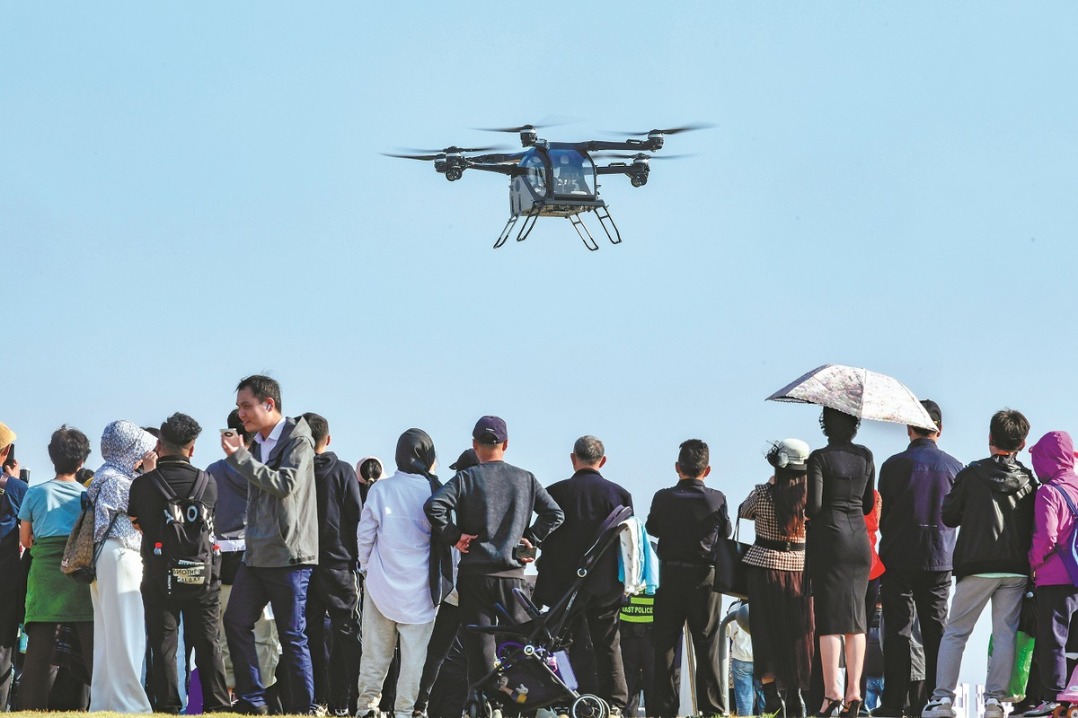Survey: Workdays get longer as overall population ages in Beijing
By XIN WEN | China Daily | Updated: 2019-03-19 10:10

The average number of working hours in Beijing has continued to grow, according to a recent report.
Working hours of residents in the capital increased nearly an hour per day on average over the past decade, with commuting time remaining unchanged, according to the report, which was released by the Beijing survey office of the National Bureau of Statistics last week. Daily average working hours for surveyed residents reached 8 hours and 34 minutes last year. Even on weekends workers clocked 7 hours and 42 minutes.
The report is based on a survey of 4,238 people older than 15 in 1,700 households in Beijing-2,063 males and 2,175 females. The survey was conducted in May.
Residents typically spent 1 hour and 29 minutes commuting daily in Beijing, the report said, unchanged from 2008.
Women differed from men in the way they used their time each day. Women typically worked 57 minutes less than men but spent more than 1 hour and 58 minutes in domestic tasks. Men spent an average of 1 hour and 50 minutes on domestic tasks.
People in Beijing spent an average of 3 hours and 6 minutes using the internet daily, the report said. People in rural areas spent more time watching TV than their urban counterparts.
In their leisure time, urban residents spent more time pursuing fitness, listening to music and reading newspapers compared with rural people, according to the report.
The report classified people into three age groups: the 15-to-39 bracket was considered young; middle aged was 40 to 64; and seniors were older than 65.
The survey showed that the major working population consisted of young people, who worked an average 10 hours per day, and middle-aged people, who worked an average 8 hours and 5 minutes. Also, 11 percent of seniors continued to work, with those employed spending an average 5 hours 48 minutes on the job each day.
Seniors spent 1 hour and 56 minutes per day on housework, middle-aged people spent 1 hour and 43 minutes, while young people spent 38 minutes, the report said.
Yang Hongshan, a professor at the National Academy of Development and Strategy at Renmin University of China, who specializes in urban space management, said as competition increases in society, the market economy attracts more young professionals to the capital to work.
"At the same time, the competition spurs people at the bottom of society to work harder, as their overtime hours increase," he said.
Yang also sees the steadiness of transportation time over the past decade as representing improved traffic flow in Beijing, since the metropolis has expanded every year.
Dang Junwu, deputy director of the China Research Center on Aging, said the low birthrate is another reason the working population dropped slightly in the capital.
Dang warned of potential problems that could occur because of the current demographics. "Newborns will lack social services, other than paid nannies. Young couples are busy working while only seniors have time to look after children, which raises risks in the long term."
The National Bureau of Statistics developed its first survey in 2008 to find out how time is used nationwide. In the decade since, people have chosen various ways to spend their time as technology has boomed and prosperity has increased.
























